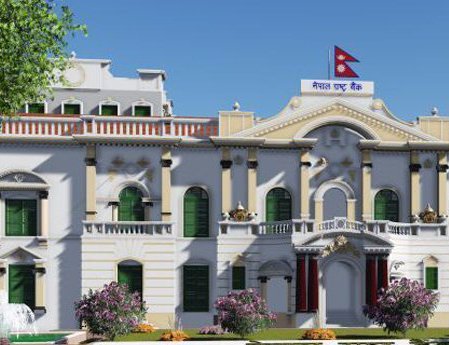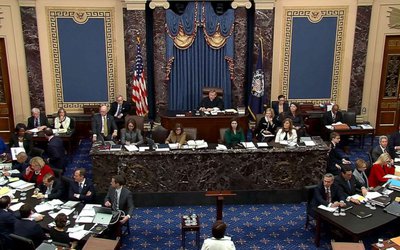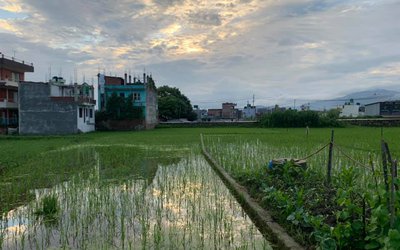
Demand for the Nepali workers and overseas products has fallen sharply as the spread of Covid 19 has increased globally. On the other hand, Nepal's imports are increasing. This is the result of a negative balance of payments trend. In general, Nepal's balance of payments over the past two decades has seen no negative trend due to the inflow of remittances from other destinations, including the Gulf and Malaysia.
A white paper presented by the new coalition government a few months ago also painted a bleak picture of the national economy. The adverse effects of Covid 19 on the national economy have been largely ignored. However, those who are looking at Nepal's trade scenario see the current scenario as natural, pointing to Nepal's growing trade deficit with various countries due to the shortage of manufactured goods for export. Tourism and remittances are the two major sectors that contribute to the balance of payments in favor of Nepal. In the aftermath of the epidemic, both areas have seen their incomes plummet. According to the trade data of the customs department, the country's trade deficit increased by 12.4 percent and higher growth in imports increased the trade deficit.
Balance of payments and balance of trade status
Overall, balance of payments refers to the state of monetary transactions of any one country with other countries in the world. Suppose that individual citizens of Nepal, industrialists or the government conducted monetary transactions worth Rs. 10 billion with other countries of the world through loans and grants. However, citizens, industrialists or governments of other countries of the world transacted a total of Rs 10.5 billion with Nepal. The difference between such transactions is called balance of payments. Here, the balance of payments of Rs 500 million for Nepal looks negative.
Balance of payments is also called balance of payments status in another language. In a poor country like Nepal, the balance of payments is often negative. Large exporting countries such as the United States and China generally have a positive balance of payments. The balance of payments indicates the savings and deficits of the country's monetary position. When the country's exports exceed its imports, the balance of payments is saved (positive). The balance of payments needs to be calculated because it: The balance of payments depicts the financial and economic condition of the country. The balance of payments depicts the state of one's country's currency (whether the value of the currency is strengthening or declining). In addition, the balance of payments helps the government determine fiscal and trade policy. Recently, the government has made arrangements for departures for trips to the Gulf, SAARC, Malaysia and Thailand based on a minimum of US 250 or equivalent foreign exchange proof. In addition, the Department of Immigration has stated that US Dollar 500 has been set aside forindividual visiting the country. Earlier, there was a limit of one thousand dollars for foreign travel. Two thousand and five hundred dollars has been established by reversing the decision of the Home Minister level of 2076 BS. In the Immigration Procedure-2065, when going on a foreign trip, one had to go with proof of foreign exchange of USD 500 or its equivalent. Earlier, all banks and financial institutions were provided with the facility, but the new system has provided co-operative facility only in class A banks. After leaving Nepal for UAE and other countries on tourist visas and abusing their visas as workers, the government had decided at the Home Minister level in 2076 BS to increase the amount from five hundred dollars to one thousand dollars. In this way, there was no legal obligation, the employer company would not take responsibility and the problem of Nepalis being stranded abroad had increased. Following the decision, the policy of submitting proof of exchange of US dollar or equivalent foreign currency has been amended. According to the amendment, those leaving Bahrain, Kuwait, Amman, Qatar, Saudi Arabia, the United Arab Emirates (UAE), Malaysia and Thailand must have at least US dollar 250 or equivalent foreign exchange proof, while those leaving other countries have 500 US dollar. . It would be easier to regulate foreign currency by exchanging foreign currency with a class A bank approved by the Nepal Rastra Bank. With the recent decision of the government, it has become easier for the middle class to travel abroad for a short period of time. However, in the case of citizens who travel abroad for a long period of time, it is seen that if the dollar set by the government is less or insufficient, there will be inconvenience and shortage. It is understood that the government has changed the immigration procedure by changing the arrangement that allows Nepali citizens to go abroad with 500 US dollars as the foreign trade is under pressure due to increasing trade deficit and declining foreign exchange.
Keeping in mind that the NRB is also tightening the rules on exchange as the foreign exchange reserves have decreased significantly. Based on the imports of the first month of the Fiscal Year 2078/79, the foreign exchange reserves of the banking sector will be sufficient to support the import of goods for 9 months and 10 days and the import of goods and services for 8 months.
Pressure on foreign exchange reserves has increased as remittances, the main source of foreign exchange, have declined and imports have also increased. Nepal Rastra Bank (NRB) has taken steps to curb foreign exchange reserves. Although the NRB has not issued any formal directive, it has directed the banks and financial institutions to discourage the use of foreign currency.
Similarly, preparations have been started to reduce the import of luxury goods. "Foreign exchange reserves have been declining as imports have skyrocketed but foreign exchange earnings, including remittances, have declined." A weaker domestic currency makes exports lower and imports more expensive. In contrast, a stronger domestic currency makes exports higher and imports cheaper.
High inflation can have a direct impact on input costs such as materials and labor, affecting exports. Maintaining a proper balance of imports and exports is important for the country. Recently, Nepal Rastra Bank (NRB) has tightened the import credit through an integrated directive. Amending the Unified Guidelines, the central bank has set a limit of a maximum of 90 days for banks and financial institutions to grant trust receipt loans (TRs). It is pertinent to mention here that last year, the NRB made provision for disbursement of TR, Bills Discounting or similar nature loan only for a maximum period of 120 days. The limit of TR loan has been reduced by amending the Unified Directive. Similarly, the central bank has also made an arrangement that the banks will not be allowed to give discount on the documents while issuing the letter of import (LC). Therefore, as it takes a long time to import due to Covid, the loan has been given more time and now it has been reduced as the situation is comfortable. Generally, import loans are usually required only for a period of 30 to 60 days. The country's trade deficit has widened due to the increase in the import of not only import but also replaceable goods.
In the report on the current economic and financial situation of the country made public by the Nepal Rastra Bank, the economic indicators of the country have been seen negative in the first month of the current fiscal year.
Failure to cover the trade deficit through remittances will add to the challenge of managing foreign exchange reserves. Taking into account the growing trade deficit of the country as a matter of concern and interest, it is necessary to control the import of some commodities, said NRB. In order to reduce the trade deficit and the pressure on the country's balance of payments, it has become necessary and imperative to focus on controlling and replacing imports of luxury and non-essential commodities.
- Susan's “U-Turn” From Atheism To Spirituality And Superstition: Some Considerations
- Jun 29, 2025
- Former Ambassador To People’s Republic Of China Acharya's 'Diplomatic Diary': A Collection Of "Autobiography " Including Diplomacy
- Jun 17, 2025
- Banker And Businessman Being The Same Person: How Practical, How Impractical
- Jun 01, 2025
- 2082/83 Policy And Program: Presentation New, Short But Not Exciting
- May 07, 2025
- Nepal's Capital Market: Some Analysis
- May 02, 2025













